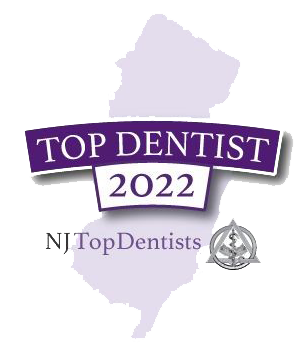
How Ringing Ears Relates to Your Jaw Joint

Your jaw and ears are closely related, with the lower jawbone connecting to your skull near the ear canal via the temporomandibular joints (TMJs). These joints rotate and slide back and forth, allowing you to chew, speak, drink and yawn. Any problems with a TMJ can lead to a TMJ disorder (TMD) and a host of symptoms that may seem unrelated, such as tinnitus or ringing in the ears. Our specialists at the Headache and TMJ Center of New Jersey can improve your ringing ears through TMJ treatment.
Why TMJ Disorders May Lead to Ringing Ears
People diagnosed with a TMJ disorder are more likely to experience tinnitus. While researchers don’t fully understand why the two are connected, there are several theories, such as:
- Jaw issues affect hearing because the chewing muscles are nearby the muscles entering the middle ear.
- Ligaments that attach to the jaw also connect to the hearing bones located in the middle ear.
- The nerves in the TMJ transmit impulses to the areas of the brain responsible for interpreting sound.
A new TMJ-related concern may aggravate pre-existing ringing ears, worsening the sound disruptions. It’s common for tinnitus to be caused by disrupted physiological functions such as TMJ disorders. Improving the residual sounds depends on treating the cause, and in this case, fixing a misaligned bite through dental treatment may relieve both your ringing ears and TMD symptoms.
Some signs that your ringing ears are linked to the temporomandibular joints include:
- Buzzing
- Hissing
- Ringing
- Decreased hearing abilities
- Earache
- Ear pain
- Itching in the ears
- Clogged feeling in the ears
- Vertigo
- Dizziness
Treating Your Ringing Ears and TMJ Disorder
The face and body problems caused by TMJ disorders, such as tinnitus and neck pain, can have a tremendous impact on your life. You may avoid certain foods, situations and activities that bring on TMD pain. Our TMJ specialists will customize your treatment plan to reduce your symptoms and quiet the ringing in your ears. Treatment may include:
- Ultrasound therapy to break up adhesions and scar tissue in the deep muscles and tissues for better blood flow.
- Orthotic therapy to position the jaw in a way that helps the muscles relax and prevent teeth grinding and clenching, which exacerbates TMD symptoms.
- Microcurrent therapy uses low electrical currents to induce production of ATP, a molecule that relaxes the muscles and releases lactic acid for pain relief.
- Low-level laser therapy to stimulate ATP production using laser light without heat for muscle relaxation, better blood flow and reduced inflammation and pain.
We also offer Botox therapy, intramuscular injection therapy and disclusion time reduction to decrease pain and improve the relationship between the jaw and ears.
Contact a TMJ Specialist About Ringing Ears
If you struggle with tinnitus and other symptoms of a TMJ disorder, our specialists can help. Contact the Headache and TMJ Center of New Jersey to schedule your consultation with our experienced neuromuscular dentists.

